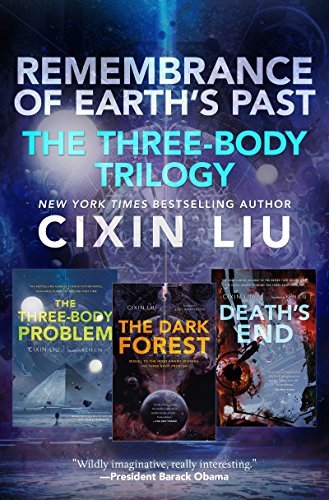Daniel Darabos reviewed Three-Body Problem Series by Cixin Liu
Review of 'Three-Body Problem Series' on 'Goodreads'
3 stars
It was interesting, but I expected better after all the warm recommendations.
What I liked:
- Depiction of politics, particularly the Cultural Revolution era. Wow, I had no idea! I spent a day on Wikipedia to learn more.
- Flashbacks and perspective switches. I liked the non-linear way that the story was told.
- Getting a taste of Chinese fiction writing style. I am sure this one book is not enough to form any overall opinion of Chinese writing, but it is a start.
What I did not like:
- Characters are not characterized. There are just two characters that are not completely faceless: Ye (old lady) and Shi (arrogant cop). This makes the drama of the main character weak. He is freaking out, but not in a relatable way.
- Sci-fi stuff. The book is near-future, so there is not a lot of sci-fi elements. But what there is, seemed randomly plucked from a hat. Full-body VR, glasses that shift microwave to visible light, nano-wire that cuts steel, levitating baseball-sized nukes. I mean you could fit them in a sci-fi book easily, but here they just pop up randomly and seem out of place among the otherwise current-day tech. No science-y attempt was made to explain their presence.
- Pace. Without good drama, characterization, or interesting science, it is a boring read for 90% of the book. All those visits to the Trisolaris VR game seem very unrelated to the story. Even looking back they seem like an interesting, but ultimately unsuccessful storytelling device.
In the end I am not a fan. But I would love to discuss the book with others! My intuition about a 3-star system would be that one of the stars would get ejected pretty quickly. Not that it moves around randomly but sorta evenly. And does that VR game look correct to you? It seems to conflate days (rotation) with years (orbiting). The rotation would not get randomized from a random orbit.
And that proton folding thing at the end! Interesting idea of course, but the consequences seem totally random. When I saw the numbers appearing on Wang's photos, was I supposed to figure out that a supercomputer built into a proton was "borrowing" energy from the universe to do it? Seems like an unfair puzzle with a moronic solution.
On the other hand if you managed to figure out the solution on your own, I can understand why you would love this book to death :).

